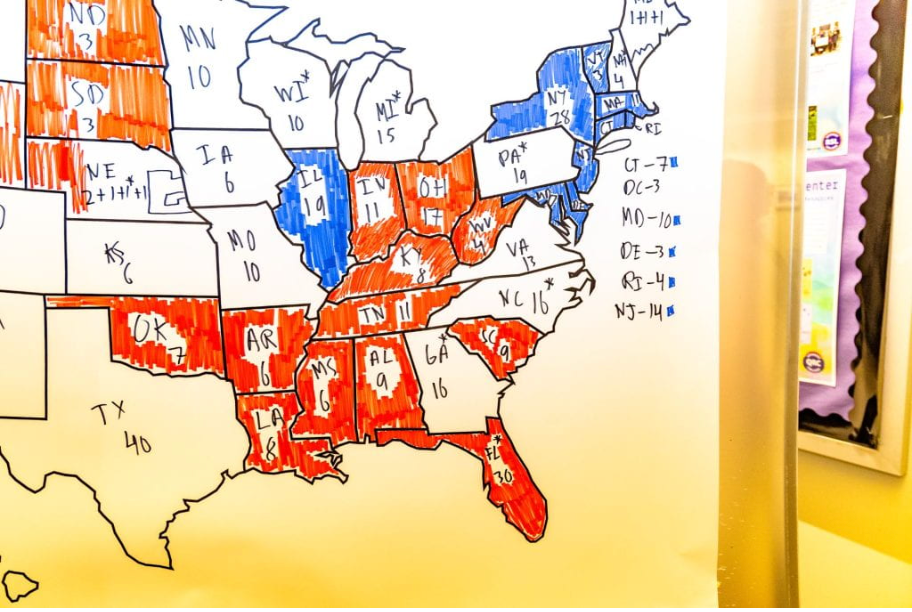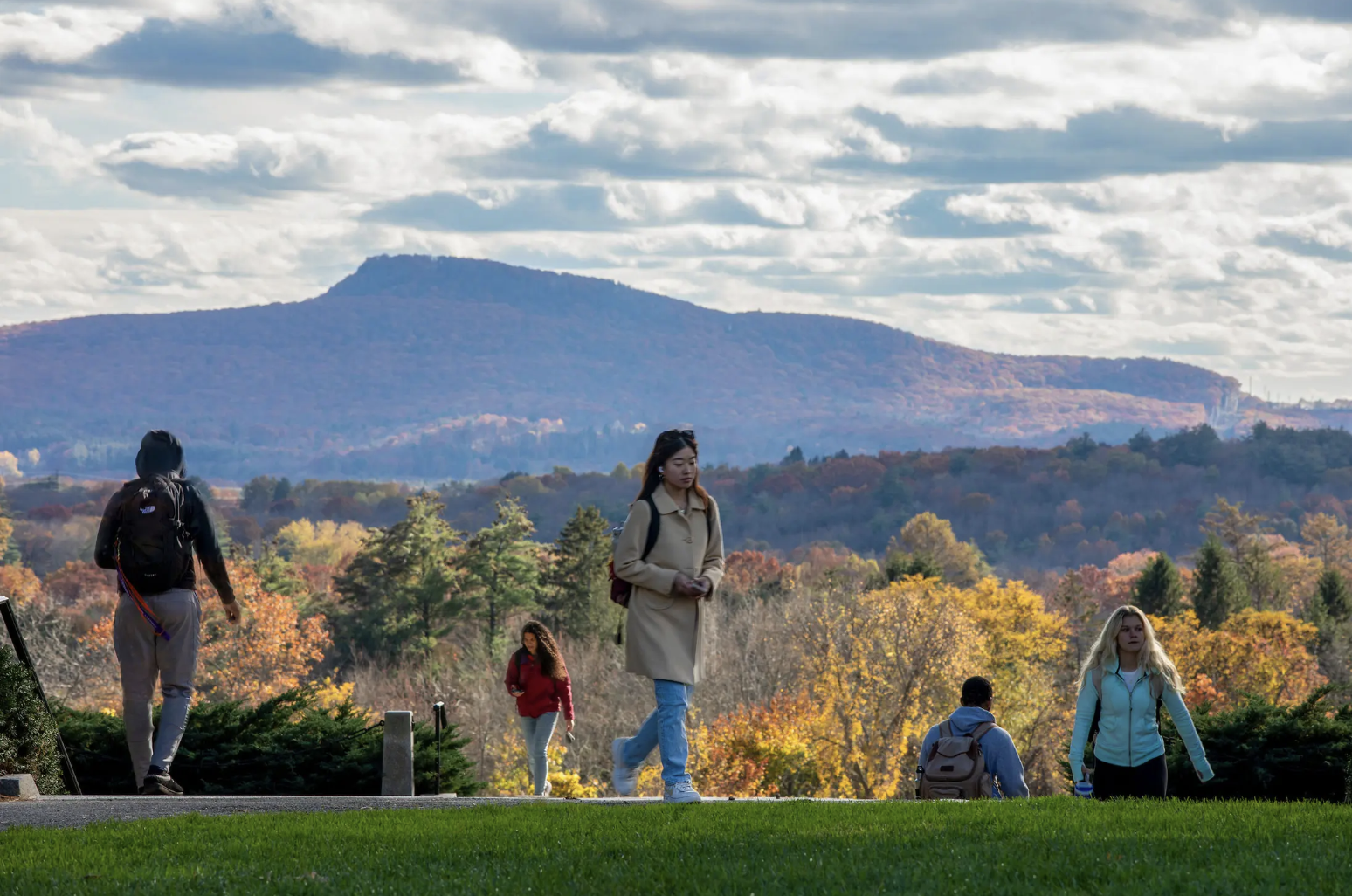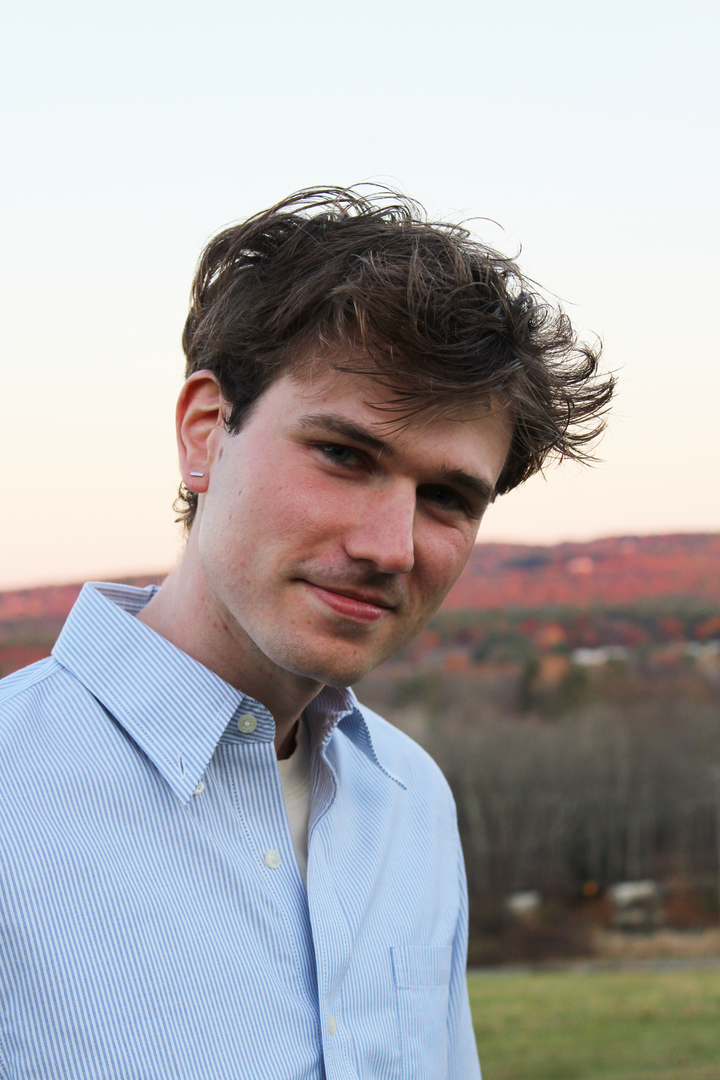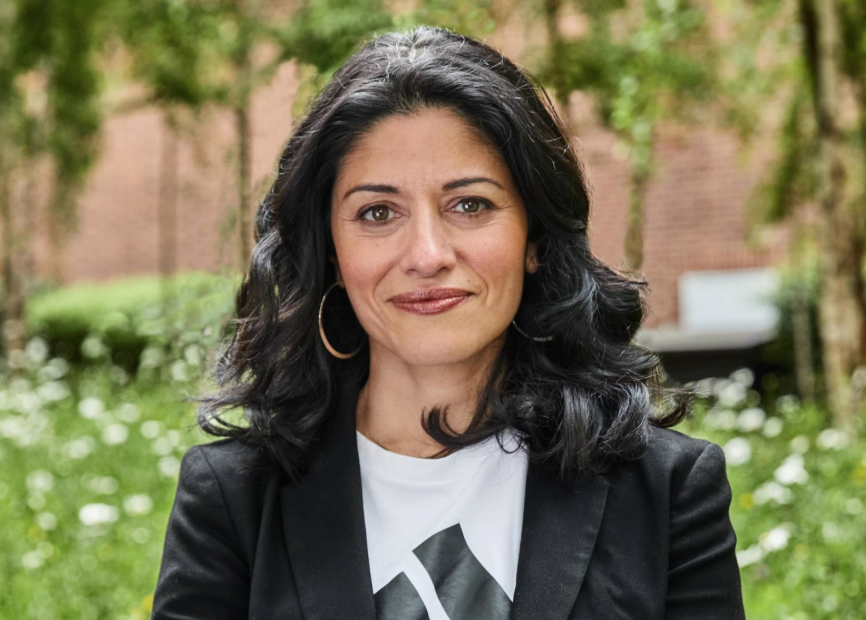Amherst College Conservatives: Altering Campus Discourse?
Last semester, Amherst students established an official conservative political presence on campus: Amherst College Conservatives. Managing Features Editor Lauren Siegel ’27 explored the impacts of this new club on the Amherst community and its implications for our national political culture.

For the first time in four years, the party of the self-described “silent majority” is silent at Amherst no more. With President Trump and the Republican Party electorally dominant in national politics, Amherst College (AC) Conservatives, which officially emerged last semester, has been making a heightened effort to assert itself as a significant campus presence. Following the rising number of conservative groups on American college campuses since President Trump’s inauguration, it is important to consider what AC Conservatives’ emergence means for the Amherst community as well as our broader political landscape.
Creating AC Conservatives
AC Conservatives was created by co-presidents Oscar Gosling ’27, Jeb Allen ’27, and Grant Decker ’26E “to grow competency in talking about politics” by making conservatism a more prominent ideology within the Amherst community. The group currently facilitates discussions amongst conservative students, and also plans to bring conservative speakers to campus in order to “counter ... what the college presents as the tone of academia.”
While AC Conservatives was officially established last semester, many of its members have been meeting informally for over a year. “We had kind of a conservatives club, just amongst friends, but we knew there were more [conservatives] out there and wanted to make it more accessible,” Gosling said.
Allen explained that last semester, the group “was meeting informally, but the school was giving us resources as if we were a [Registered Student Organization (RSO)], because they wanted to support opposing viewpoints during the election.” These resources included “$50 a meeting for pizza.”
Decker, in particular, was motivated to formalize the club because he remembered having a conservative presence on campus during his freshman year: the Amherst College Republicans. This club disbanded in 2019 after the Association of Amherst Students (AAS) Judiciary Council sanctioned AC Republicans for transphobic comments posted in its GroupMe. However, AC Conservatives emphasized that it is a different organization with a different ideological base.
“[AC Conservatives] is not necessarily focused on Republican policies. It’s focused on conservatism, and they’re not congruent. Not everything the Republican Party is doing right now is hailing from a conservative purpose,” Allen said. “We named it Amherst Conservatives so we could have a more diverse outlook when it comes to the meetings.”
Gosling — an international student from New Zealand — said being conservative means being “guided by traditional values and an understanding that [progress] is non-linear” and approaching “politics with skepticism and curiosity, questioning the very nature of truth, and relying on logic, rather than personal characteristics, to justify policies.” For Decker, being a conservative means believing in a small, limited government, a strong rule of law, and natural rights that protect against government intrusion.
AC Conservatives noted that framing the club according to these broad definitions of conservatism has resulted in a lot of ideological diversity within their club. “You've got people who love Trump, people who hate Trump, a lot of internationals who come aren’t really Republicans,” explained Gosling.
However, AC Conservatives also asserted that their diversity is more than just political.
Allen, referencing the fact that he is a white varsity football player, said, “There is a narrative that the only Republicans or conservatives on campus are just a bunch of rich, white, football, lacrosse, hockey players, or whatever. And it's just simply not true.”
“We did a [diversity, equity, and inclusion] profile on our club and it’s very diverse, truly,” added Gosling. “We’ve got all the categories.”
As AC Conservatives is not a RSO, it doesn’t openly publicize the times or locations of its meetings. Instead, the organization primarily operates by “word of mouth” and meetings are coordinated through the club’s GroupMe, which has over 70 members.
AC Conservatives’ meetings are primarily discussion-based, focusing not only on examining contemporary politics but also dissecting the “liberal echo chamber” of Amherst College.
“There are students who are quietly resentful towards these liberal-dominated institutions; they just quietly go and vote for Trump at the polls, and then people on Election Day wonder, ‘How the hell did this happen?’ Schools like Amherst are the reason why this happens,” Allen said. “Academia should be a place where we can talk about divisive things, and as I feel like Fizz has recently shown [that] Amherst, and academia as a whole, is utterly incapable of engaging in civil discourse … This student body is crazy.” (Allen was recently the target of harassment on Fizz).
AC Conservatives’ Aims
Gosling said that having a more prominent conservative voice on campus is necessary not only for a true liberal arts education, but also to ensure social change. “I know so many people on this campus who would revolt if they had to spend time with a Republican, but … if you want change across the board, you can’t just do it within your own party,” Gosling said.
“MLK didn’t say ‘screw over 50% of America … He talked with them,” Allen added.
According to Allen, Amherst is uniquely suited for respectful civil discourse because of its small student body.
“There’s a lot more potential for change when students know each other,” Allen said. “When I know somebody, and I’ve sat down with them in the class, and I know their goals in life and I know their dog’s name, we're naturally going to be more empathetic [and able to] reason with each other.”
AC Conservatives believes that the club not only benefits students on the right, but also students on the left.
“The point of the club is to help the ‘party of tolerance’ gain its tolerance back, to let the party of tolerance demonstrate that it really is tolerant,” Gosling said.
For Gosling, AC Conservatives is not “always anti-Democratic values as such. I think it’s often just a place for criticizing methods, pointing out failings, and thinking of ways things could be done better.” Allen affirmed this notion, adding, “I feel like the Democratic Party as a whole is overly empathetic, and that hurts them.”
“We have received a massive amount of interest recently, even from liberals who are extremely dissatisfied with the Democratic Party, and we are so eager to pick them away,” Allen said. “We are so excited to slowly start pulling them into our camp.”
Responses of Other Campus Political Groups
In the past, even liberal students have bemoaned the lack of a conservative group on campus, arguing that the lack of ideological resistance has contributed to the campus’ political apathy.
Despite holding oppositional political views, the Amherst College (AC) Democrats affirmed the importance of AC Conservatives’ existence on campus.
“We’re convinced that more political activity on campus is a good thing, and if this is a way to get more people on any part of the political spectrum to be more vocal and be more active, we’d be happy about that,” said Hedley Lawrence-Apfelbaum ’26, who is a co-president of AC Democrats alongside Isabella DePreist-Sullivan ’27 and Henry Pallesen ’25.
“I don’t think Amherst students should be scared about conservative voices popping up and being more prominent on campus. I think they should take it as an opportunity to learn more and develop their own thinking about these issues.” Pallesen said. “You won’t have as good of ideas if you’re not faced with a challenge to your beliefs, even if you are very convinced that the challenge is wrong.”
Lukas Luby-Prikot ’26, the president of Amherst Political Union (APU), also welcomed the addition of AC Conservatives.
“We have so many different clubs focused around more progressive causes, so I think it adds balance and a place for certain students to go,” Luby-Prikot said.
AC Democrats specifically hopes to collaborate with AC Conservatives in the future, hosting both political discussions as well as social events where talking about politics is explicitly banned.
“If we just talk with members of each of the clubs on things completely unrelated to politics, we can see each other as human beings beyond ideological views,” explained Pallesen. “If you’re able to develop that sense of empathy and trust, then you can have uncomfortable conversations, but not feel that your sense of self is being destroyed.”
Nevertheless, AC Democrats also acknowledged that AC Conservatives’ presence on campus may feel threatening to some students.
“There’s a lot of rhetoric that is very harmful that comes from national political conservatives,” DePreist-Sullivan said. “The way that any kind of minority is being talked about right now totally devalues our rights and worth as people. And while there may be nuance to debate in these issues and we hope to provide a space to do so, it definitely worries me that engaging with the ideas might just feed into the problem.”
“It’s important that Amherst as a school [doesn’t] import the horrible political climate of our country, and people reflect that without any form of additional thinking,” Lawrence-Apfelbaum added.
However, for Gracie Rowland ’25, the president of Reproductive Justice Alliance (RJA), the existence of AC Conservatives has dangerous implications for both our campus and national political culture.
Rowland argued that Amherst College students can be blinded to their privilege and lose their ability to empathize with others — something she believes is happening with AC Conservatives. “They’re not really utilizing the education that's been given to them that asks them to engage in radical empathy, to engage in radical love and to look at their fellow men as brethren,” Rowland explained.
“To me, it doesn’t matter as much whether or not you’re a Trump supporter … the minute you tack on that label of conservative, you have told me that you support hundreds of years of oppression and subjugation of so many people,” Rowland said. “On some level, you agree with Trump, or else you wouldn’t be a conservative. Just because you’re dipping your toes in the water, doesn’t mean you’re still not in the water.”
According to Rowland, AC Conservatives’ plan to bring more conservative speakers to campus has the capacity to undermine Amherst’s core ideals. “I think if you want an alternative perspective, go buy that person’s book. Go look them up on YouTube, follow their social media. But Amherst as an institution should not be giving a platform to [spread] hate; it is against its supposed ideology and values,” explained Rowland. “You can understand where [conservative people] are coming from and allow them to enact free speech … without giving them a platform which, in some ways, is uplifting them.”
In the face of such a divisive political climate, whether AC Conservatives will succeed at their goal of “fundamentally chang[ing] academia” remains to be seen. Regardless, the club’s existence makes it clear that the ideological conservatism notable in last year’s elections also exists on the Amherst campus; we must prepare for the political dialogue occurring on the national stage to find its own unique home in our community.
“The people and the admin and professors are good people. It’s just, [Amherst] is a liberal echo chamber. It’s never good to be in an echo chamber. That’s why America became America,” Allen said. “There’s institutional reform that needs to take place. If we students don’t bring it up, why would it ever come?”






Comments ()